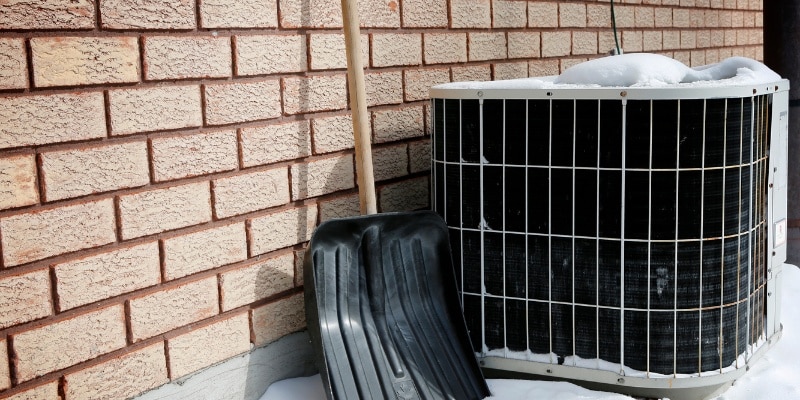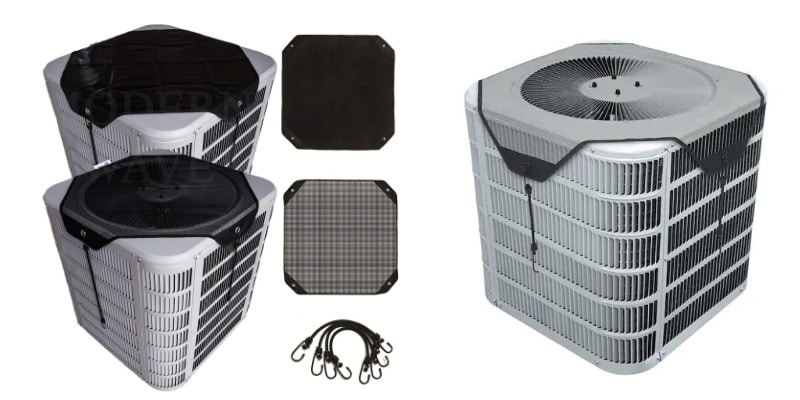The transition from the warm breezes of summer to the chilly gusts of winter often brings a list of to-dos to ensure our homes remain comfortable and efficient. One such task that has been a topic of debate among homeowners is whether or not to cover the outdoor unit of the air conditioner during the winter months. This article aims to provide a comprehensive look into the arguments for and against covering your air conditioner during winter, along with regional considerations that could influence this decision.
To Cover or Not to Cover?
The outdoor unit of your air conditioner, also known as the condenser unit, is built to endure the elements – rain, snow, or the blazing sun. However, as winter rolls around, some experts suggest giving your air conditioner a winter coat to protect it from the harsh conditions, while others advise against it.
The Case for Uncovered
Some experts believe leaving your air conditioner uncovered during winter is fine as long as the unit is well-maintained. They argue that these machines are designed to withstand outdoor conditions year-round, and covering them may lead to other issues, such as becoming a cozy home for rodents. Additionally, covers can trap moisture, which, in the long run, can lead to mold growth and rust, especially if non-breathable materials like plastic are used.
The Case for Covered
On the other hand, proponents of covering argue that a cover can protect your unit from falling ice or snow, which could damage the exterior or even the internal components of your air conditioner. Especially in regions where snowfall and ice buildup are common, covering the air conditioner post-summer is advised to protect it from these threats.
The climate in your region can significantly influence the decision to cover or not to cover your air conditioner during winter. Here’s a more detailed look at some regional considerations:
Snow and Ice
In areas prone to heavy snowfall and icing during winter, covering the air conditioner can shield against these elements, reducing the risk of damage caused by the weight and pressure of snow and ice accumulation.

Moisture and Humidity
Regions with high humidity levels and a lot of precipitation could pose a dilemma. While covering may seem like a good idea to keep rain and snow out, it can trap moisture, leading to a higher likelihood of mold growth and rusting.
Specific Threats and How Covering Helps or Harms
There are several threats that winter brings along when it comes to the well-being of your air conditioner. Here’s a breakdown of these threats and how covering or not covering addresses these issues:
Snow Accumulation
Snow accumulation can damage the fan blades or other external parts of the unit. A cover can help prevent such accumulation, thus reducing the risk of damage.
Rodent Infestation
Rodents tend to seek warm and cozy spaces during winter. An uncovered air conditioner may deter these unwelcome guests. At the same time, a covered one might invite them to nest inside, potentially damaging the internal wiring and components.
Extremely Low or High Temperatures
Air conditioners are built to endure extremely low temperatures. Covering them won’t provide any additional benefit in this regard. It may actually trap moisture, which can be harmful in freezing temperatures.
When You Should Cover Your Air Conditioner
Here are certain scenarios when covering your air conditioner is advisable:
- If your air conditioner is located near trees, covering it during the fall is a wise move. Leaves, berries, twigs, and other fall debris can find their way into your unit, potentially causing blockages or other issues.
- It’s beneficial to clear any debris during annual maintenance service to prevent problems down the line. Ideally, have your AC serviced before firing it up for the first time the following year to ensure it’s in prime condition.
- While covering your air conditioner during winter is not imperative, being vigilant about overhead icicles is essential. These frozen spears can cause significant damage if they fall into your unit.
- If icicles form and are hard to remove, placing a sturdy top cover or a piece of wood over your unit can act as a shield, preventing potential damage from falling ice.
- Mesh coverings are an option for winter use. Still, they won’t provide protection against falling ice, serving more to keep out smaller debris.
Covering your air conditioner in specific scenarios can go a long way in preserving its functionality and extending its lifespan. Adapt your protective measures to the changing seasons, and you’re on the right track to keep your AC unit in top-notch condition.
Air Conditioner Covers For Outside Units
Air conditioner covers for outside units are enclosures designed to protect the air conditioning units from various external factors that could potentially harm them. These covers come in various materials, including plastic and wood, and they are tailored to shield your AC from snow, leaves, rodents, and dirt, which can clog or damage the unit.

Custom-fit air conditioner covers are available, perfect for use during the fall and winter, providing a snug fit and ensuring protection against the elements.
Moreover, they come in various styles, sizes, and material options, providing durable, weatherproof protection for your outside A/C unit.
My recommended air conditioner cover: Goodman AC Cover
Covering the air conditioner, especially the top portion, during the fall can prevent leaves, twigs, nuts, and other falling debris from getting lodged in the unit, which could cause problems later on. Despite the benefits, whether to cover the air conditioner can depend on the specific environmental conditions in your area and whether the risks posed by snow, ice, and other debris are significant enough to warrant a cover.
Conclusion
The decision to cover your air conditioner during winter largely depends on the specific circumstances surrounding your region’s climate and the location of your unit. A well-maintained air conditioner is built to withstand the winter months. Still, certain conditions like heavy snowfall or a high likelihood of falling ice might warrant using a cover. Evaluate the threats, consider the pros and cons, and make an informed decision to ensure the longevity and efficiency of your air conditioning unit.
This comprehensive guide sheds light on the various factors that come into play when deciding whether to cover your air conditioner in winter. By considering your local climate conditions and the specific threats that winter might pose to your unit, you can make an educated decision that will help keep your air conditioner running efficiently for many summers.






